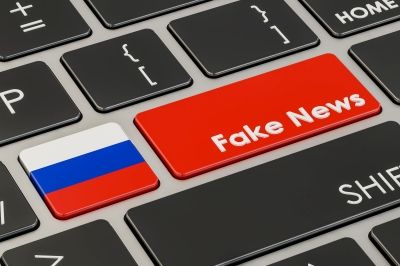Who is behind this propaganda campaign?
The metadata from many of the leaked documents points to their creation by a team working under Ilya Gambashidze, the head of a Moscow-based PR firm called the Social Design Agency. Last month, the US sanctioned Gambashidze for his role in a sustained and malicious foreign influence campaign orchestrated by the Kremlin. This campaign, which Western officials have dubbed "Doppelganger," involved setting up websites masquerading as legitimate European media outlets.What narratives do Russian trolls use?
More than 100 leaked documents, spanning from May 2022 to August 2023, provide insight into the scale and tactics of Moscow's efforts to weaken support for Ukraine not only in the US but also in France and Germany. One tactic involved creating a fictitious American character who opposes military aid for Ukraine. The character argues that the government should instead allocate the funds to secure America's borders and claims that "He sees that Biden's policies are leading the US toward collapse," the Washington Post reports. The Kremlin's strategists recommended numerous ideas for articles and social media posts, including one comparing homelessness levels in the US and Russia, suggesting that the United States increasingly resembles a "Third World country." A proposed comment from a fictional American expressed anger at Ukrainian aid packages, claiming the funds end up in the pockets of American and Ukrainian officials while homeless people in the US "sit at the feet of passersby [and] sleep under bridges, " according to the Washington Post. Kremlin-linked strategists send out written proposals for social media posts, comments, and YouTube videos that would inflame racial and social tensions in the US and highlight themes of widespread poverty, high inflation, economic stagnation, and the potential loss of jobs for white Americans while suggesting that "colored and degenerate people and invalids" receive special treatment.How Russian propaganda affected US politics?
Analysts and former US officials told The Washington Post that the Kremlin's propaganda campaign is part of a decade-long strategy to amplify the voices of populist, anti-establishment politicians who oppose America's global role. The campaign not only attempts to sway public opinion but also seeks to influence American politicians, with some Republican members of Congress reportedly echoing Kremlin-propagated narratives, as reported by the Post. One of the most widely spread claims, which was traced to a site connected to a former American police officer turned pro-Russian journalist, John Mark Dougan, falsely asserted that Ukrainian President Volodymyr Zelenskyy had purchased two yachts with US aid money. This fake story, denied by Zelenskyy's government, was amplified by far-right Rep. Marjorie Taylor Greene on X/Twitter, according to WP. The Washington Post notes that Kremlin attempts to meddle in US politics first surfaced during the lead-up to the 2016 presidential elections when Russian trolls spread disinformation to boost Donald Trump's campaign and undermine Hillary Clinton's. Despite social media platforms' efforts to crack down on hostile state actors, disinformation campaigns continue to thrive. Related:- Russia’s propaganda war: How Putin bought Germany
- US rejects Russia’s “nonsense,” “propaganda” claims linking Ukraine to IS’ Crocus concert hall attack
- France exposes Russian propaganda network undermining Ukraine support
- European Commission: Putin only repeated old propaganda lies in interview with Carlson
- Victims of “Donbas genocide” were paid actors, Prigozhin’s fired trolls reveal
- Zelenskyy says Ukraine is open for loans as a form of US aid if it is provided timely
- “No US aid, no choice but retreat,” Zelenskyy warns
- Ukraine’s military aid hangs in balance as US House reconvenes tomorrow

